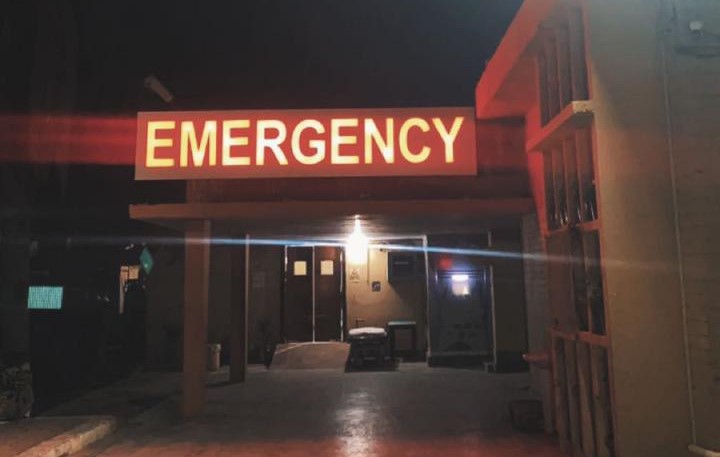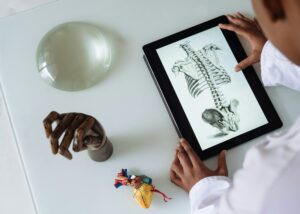It has been a few months since I have completed my house job or internship. I keep looking back fondly on it. Well, except for the pay, brutal long hours and heavy workload (it wasn’t even a government hospital). Before I started my house job, I searched a bunch of stuff online including other people’s house job experiences so I thought why not share mine? Perhaps, my house job experience can give an insight to medical students and new medical graduates. Practicing doctors might find something to resonate with. People in non-medical field-related can read into the lives of doctors (I am surprised you are here). I also wrote this blog for myself so it can serve as a memoir which I can always read back on years from now.
House job is a rollercoaster and I hope you have more moments of screaming and laughing rather than screaming and crying.
So I wrote a long blog (2417 words to be precise). At least longer than I expected.
I was happy to be a part of many patient stories and now I shall share mine.
I knew my house job experience would be once in a lifetime experience, whether for better or worse. It would be the last time I had a chance to solidify my concepts and skills under supervision, and the last time my friends and I would be together in the same place. You never know where life will take us after our house job ends.
I hope you learn something new or enjoy reading about my personal experience as a house officer. Read on ahead to see what is it like to do house job in Pakistan.
Rotation experience and Ranking them
I did three months of rotation in each department in the following order – Medicine, Psychiatry, Surgery and Ophthalmology.
1) Medicine – A time of many firsts
I was nervous and excited at the same time to start with Medicine. I felt happy as I love Medicine and would probably have chosen to specialize in Medicine if my priority was a clinical career pathway. I was nervous as this was the first time I would be treating patients as a doctor. It would also be the toughest rotation as my seniors had told me before. I also struggled with balancing the fear of hurting patients and being confident in my management. Hello, imposter syndrome. Lots of thoughts went through my mind.
‘Will I be able to keep up?’
‘Will I hurt someone?’
‘Do I even deserve to be a doctor?’
The medicine department in particular was a time of many firsts since it was my first rotation.
My first month went amazing. My mornings were spent in OPD and I was so happy when I prescribed for the first time. When I used my stamp for the first time. The first time I heard people calling me ‘Doctor’ and ‘Mam’ so many times. Believe me – it took time for me to get used to hearing ‘Doctor’.
I remember us house officers/medical interns (2 males and 2 females) crying in the ward when we witnessed our first code blue and were unable to revive the patient. I remember when my friend and I got consent for ERCP in Urdu from a patient for the first time, and scheduled for surgery tomorrow. That felt like a feat. My friend and I had to monitor her for the whole night for vitals but the patient couldn’t unfortunately make it through the night.
I also learned and performed many skills for the first time. I wanted to improve my history and examination skills so I tried my best to perfect my history. As for my examination skills, I made a checklist of skills that I must perform by referring to my fifth year medical syllabus. I would mark any skill list I had performed on my paper and also recorded the number of times I had performed a skill. Performing ECG took the first spot!
Pro Tip: Brush up your history-taking and examination skills before starting your house job and work on it throughout your internship year.
Best case encountered: Cardiac myxoma
Why? The patient was admitted to investigate the underlying cause for his jaundice and vomiting. Cardiac myxoma was just an accidental finding on echo. I remember racking up my brain a lot to diagnose him. That’s why this patient was my favourite case in the medicine ward.
Update (March 2025): The patient called me after almost two years saying he underwent cardiac surgery and is now doing well! (Yes, I used to give my number to patients during my early days of house job).
Favourite memory: I won’t say I have something in my head that comes immediately but my time in OPD was very memorable. Patients appreciating my efforts and treating you with respect was also a good experience. I had a good start (Medicine OPD) and ending (Cardiology).
Worst memory: In general, patient deaths were hard. The long hours and heavy workload was exhausting. This was especially true after one month as my friend and I were assigned to different on-call night groups.
Bonus: I lost my expensive stethoscope. Almost costed the same amount as my monthly salary.
Difficulty ranking: 1
Overall Rank: 3
2) Psychiatry – A peak into the individual and society
Psychiatry was easy compared to medicine. Now, I had regular 6 to 12-hour ER shifts instead of straight 30-hour duty.
Mentally, it was a bit tough sitting with patients sometimes. I shed tears a few times when listening to patients and hearing psychiatrist consultants consoling them. My cat had also passed away at that time so my emotions were a wreck.
At the same time, I was honoured to serve patients with mental health illnesses. In our society, going to a psychiatrist or psychologist is seen as a taboo. My patients felt comfortable enough to share their deep hidden pain and I felt a huge responsibility to help them. It was in psychiatry OPD that I was able to see what kind of suffering happens in people’s minds and behind closed doors. I believe you can see a lot of societal issues in psychiatry OPD such as domestic violence, poverty, extramarital affairs, abuse etc. I also got to know cultural customs like watta satta (exchange of brides between two families) or bacha bazi (prostitution of adolescent boys). Psychiatry truly opened my eyes.
I formed a great bond with my batchmate (now friend) and Senior Registrar of Psychiatry. We discussed medical cases, research, languages, future goals, personalities and everything in between.
Pro Tip: Strive to be extra empathetic with patients. Particularly those with mental health illnesses.
Best case encountered: Dissociative fits
Why? I found it quite interesting that under extreme stress, the brain can make the body undergo ‘fake’ fits.
Favourite memory: My time with my colleagues in the OPD and HOD (Head of department) room.
Bonus: I was practising certain facial expressions in front of the mirror and then proceeded to show it to my supervisor (we are close).
Worst memory: I had a very hard time staying awake during my night ER duties.
Difficulty ranking: 3
Overall Rank: 1
3) Surgery – Making and strengthening (new and existing) bonds
Surgery was mainly about pre-op patient preparations, assisting in surgeries and post-op care. It was pretty standard and it was good seeing patients improve after they underwent an operation.
A lot of my close friends were in surgery rotation and after almost six months of separation from them, we were finally together.
Our surgery post-graduate trainees and consultants were incredible. They were helpful, skillful and had fun personalities -the whole package. By the end of our surgery rotation, we had an amazing relationship after countless gatherings and memories!
Pro Tip: As long as you have the same goals, try to do your rotation with friends. They are a great source of support and you get to make amazing memories.
Best case encountered: Hiatal hernia (Regret not writing a case report on it!)
Why? The patient was an infant and I invested a lot of time preparing the patient for pre-op and interacting with attendants. The patient’s grandmother even asked for my hand in marriage for his son. Obviously, I declined!
Favorite memory: I have many fond memories but I’ll narrate one experience. The first time I stitched a patient’s wound, I was clearly nervous. The kind patient noticed this and told me to take my time carefully. He then said his daughter is also doing medicine. Perhaps, that’s why he had a soft spot for me? I am truly blessed that I always got good patients.
Worst memory: My friend and I were in the same morning and on-call group. We both had a very bad cold and still had to work the entire week. We couldn’t afford to take a day off since the work load was a lot and there was no one to cover us.
Bonus: I lost my kindle! It was my first big purchase with my hard earned money. Ouch.
Difficulty ranking: 2
Overall Rank: 2
4) Ophthalmology – Ending with a good note
It was an overall nice experience. Nothing too dramatic. I enjoyed talking with my friend, medical officers and consultants in the eye department. As for the work itself, diagnosing common eye illnesses and conducting eye exams was easy and fun work.
The eye department had a certain reputation. House officers chose this department mainly because they were marrying and needed a light rotation. Almost every house officer who came into the eye department got married. In other cases, people chose this rotation because they wanted to study for USMLE or PLAB. There were rare people like me who chose eye because well, they liked eye.
While many people opted for Peadiatrics and Gynaecology and Obstretics/Orthopedics, in hindsight, choosing Ophthamology has been beneficial for me. Even to this day, my colleagues consult me for eye problems.
My last month in ophthalmology was my last month in house job. I tried to learn as much as possible and spend quality time with my friends.
Pro Tip: Please don’t prescribe betamethasone (betnesol) eyedrops to patients with any eye symptoms (redness, itching, watering) as first line treatment. Steroids should be given after careful evaluation.
Best case encountered: Multiple myeloma (ocular manifestations)
Why? Since multiple myeloma is a systemic disease, it was interesting to see a patient present in ophthalmology OPD with ophthalmic manifestations of the the disease.
Favourite memory: Seeing the eye up close. For example, visualizing the retina via a direct ophthalmoscope, the green stained keratitis pattern via the slip lamp and phacoemulsification procedure for cataract in the OT.
Worst memory: A young patient had initially come with a seemingly treatable and benign condition. Unfortunately, the patient started to lose his sight and it was that way the last time I saw him.
Bonus: The eye OPD room was too cold. I kid you not. It was the coldest room in the whole hospital despite having a heater. We used to coop up around the heater for our survival.
Difficulty ranking: 4
Overall Rank: 4
Patient stories – Happy and Sad endings
There are some cases that I don’t forget. Like the very first patient that I was assigned to. It was a young patient L* who had Systemic Lupus Erythematosus (SLE). L had rigid joints throughout the body rendering L’s practically immobile. L couldn’t even speak properly as his/her jaw was stiff. L was in such a bad condition that in my naive mind, I wondered, “How do you even recover from this?”
L was eventually discharged and I was so happy to see L a few months later walking and talking normally. I almost couldn’t recognize L at first. L had come to get his/her father-in-law checked in the ER. I was amazed at L’s recovery and so thankful that we have modern medicine.
But not everyone had happy endings.
Patient M* had been admitted for a long time due to an abscess formation. M was a chirpy and lively patient and as his/her condition deteriorated, so did his/her words and energy. When my friend and I were on night duty, M’s blood pressure had been high continuously. We monitored and managed him/her and then started talking about M. My friend said M is worsening day by day and I optimistically said ‘I don’t think so. He’ll get better in no time.’ Perhaps, it was denial as a lot of people, myself included, were on good terms with M.
I was one of the first responders who went to him when he coded. M’s son started praying loudly as M was slipping away. We managed to resuscitate him and I thanked God. However, M passed away later that day in the evening. M left quite an impression on us, and my friends and I still discuss him/her.
Relationships – What makes or breaks any experience
Like most of my batchmates, I had chosen a hospital affiliated with my parent institution so I was somewhat familiar with my new colleagues. Fortunately, I encountered good-natured people everywhere. The hospital staff, my seniors, patients and their attendants. Moreover, I was touched to see families taking care of their sick relatives. Sons caring for their fathers, fathers caring for their wives, nieces taking care of their aunts.
Conclusion
I had a great experience during my one-year house job (or foundation year 1) at a semi-government hospital. I know I am lucky as not everyone has the same house job experience. I got to learn and serve patients a lot. I believe serving others is the rent we pay for living on earth so I was grateful for the opportunity to work as a junior doctor.
However, the only reason I was able to hold it out despite the hard and long working hours was because I knew it was temporary. It was the first and last time I was going to do night calls as I wasn’t going to do clinical specialization. My decision was affirmed even further after I worked on some documents in the hospital and enjoyed writing. I thought to myself that working as a medical writer was the right decision while also pursuing research and public health. At least, that’s the plan for now.
House job was my first step in adult life and I recommend that every medical graduate should complete it. If you are going abroad and house job is not necessary, you should still try doing it for a few weeks after you are done with your exams.
I want you guys to experience this rewarding feeling as nothing matches the satisfaction you feel when you finally apply your knowledge and treat your own people.
Thank you for reading till the end!
Comment down below if you would like add or share anything. I love replying to comments.




